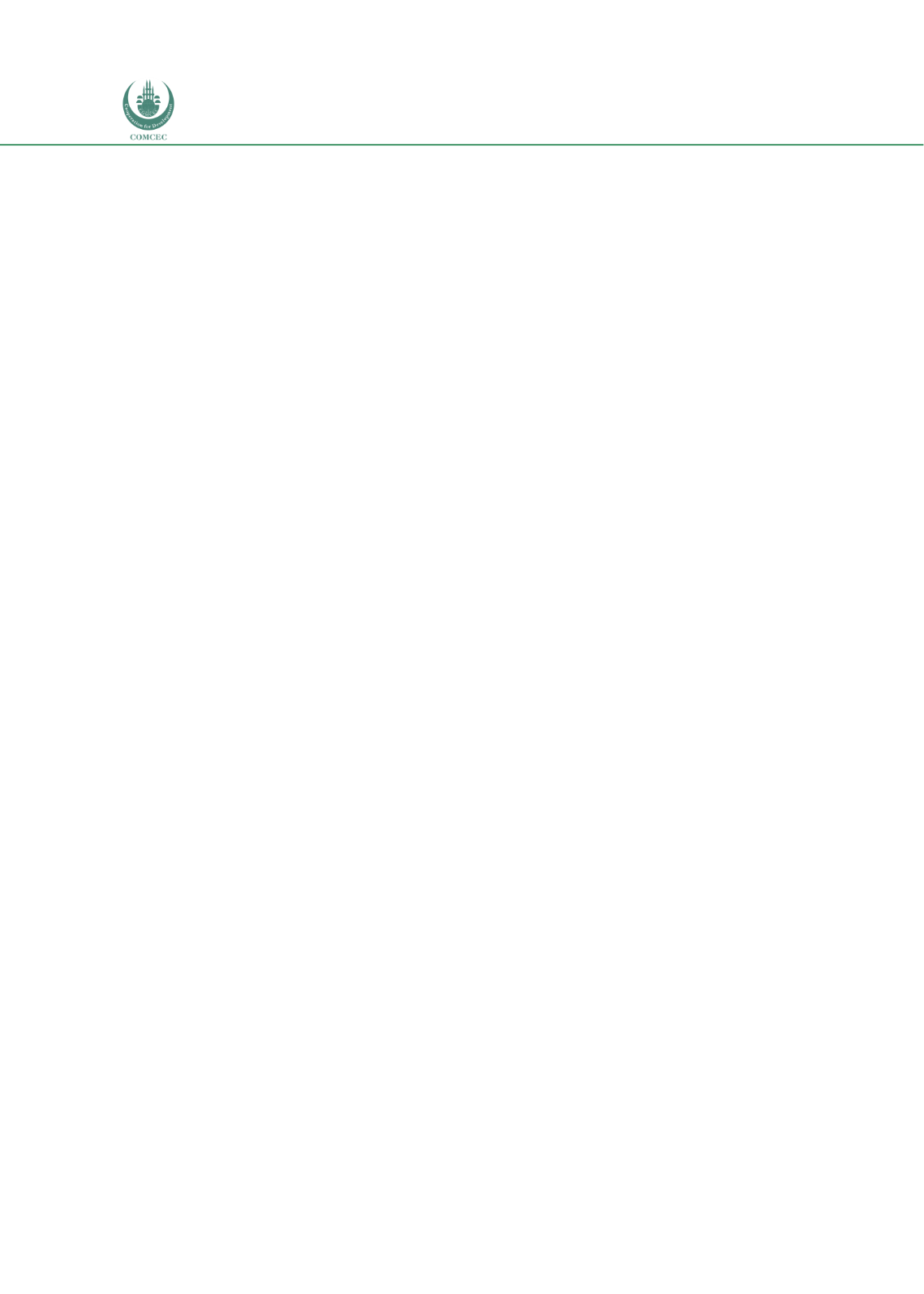

Infrastructure Financing through Islamic
Finance in the Islamic Countries
84
Government sukuk or SBSN takes various forms such as the Islamic fixed rate Sukuk (IFR),
Retail Sukuk (SR), Green Sukuk, Project Based Sukuk (PBS), Indonesian National Sukuk (SNI),
etc. All types of SBSN are for infrastructure financing, especially PBS which is issued in a
longer tenor than the others. SBSN is also issued for specific purposes and targets. For
example, SDHI utilizes pilgrimage funds (amounted to more than IDR 100 trillion or USD 71
billion) to finance government projects; SNI is used to tap international markets since it is a
dollar-denominated Sukuk; and SR and ST target retail investors. The distribution of issuances
of different types of government sukuk during 2013-2017 is shown in Chart 4.1.8. The table
shows that Project Based Sukuk (PBS) has the largest issue and the government has increased
the issuance of this sukuk over the years.
The Ministry of Public Works has offered Islamic finance schemes through infrastructure
sukuk to finance public works infrastructure projects. In total, the Ministry of Finance has
issued IDR 16.7 trillion (USD 11.9 billion) SBSN to finance 590 national infrastructure projects
in 2017. As such, Islamic finance has had some contribution in developing national
infrastructure projects. Furthermore, 40% of the IDR 16.3 trillion (USD11.6 billion) financing
of the National Electricity Company (PLN), one of the major SOE companies, is realised with
funds raised by sukuk.
Besides government sukuk (SBSN), corporate sukuk contributes to project financing. From the
period of 2013 to 2017, the total outstanding value of corporate Sukuk was IDR 17.5 trillion
(USD 12.5 billion), with an average annual growth rate of 20.1%. Up to the end of 2017, there
were 213 individual investors invested in corporate sukuk (through mutual fund companies)
followed by pension funds and insurance companies.
The Islamic money market assists market players and investors in terms of liquidity
management. Islamic money market instruments are classified as instruments between banks
and the central bank and among banks. For the former, there are Bank Indonesia Islamic
Certificate (SBIS), Repo SBIS, Repo SBSN and Islamic Foreign Exchange Term Deposit. In the
latter type, two active instruments exist, namely the Interbank Mudarabah Certificate (SIMA)
and Islamic repo. In fact, if an Islamic bank needs urgent liquidity, it tends to firstly borrow
from the parent (conventional) bank. Secondly, it may use both repo SBIS and repo SBSN with
the central bank. In relation to infrastructure financing, Islamic money market enhances
liquidity management among Islamic financial institutions in financing infrastructure projects.
For example: (i) Repo SBSN might help SBSN holders (banks, non banks) gain short term
liquidity through repo transactions and avoid liquidity risks; and (ii) short term SBSN (namely
SPN-S), which is for short-term infrastructure project development, might be liquid in the
secondary market and attract more investors to get into this instrument.
The social sector in Indonesia is active in Indonesia with several new schemes. Some of the
new initiatives use the innovative ideas of using the instruments of zakat and waqf to provide
social infrastructure services. The case studies illustrate a few examples.
















